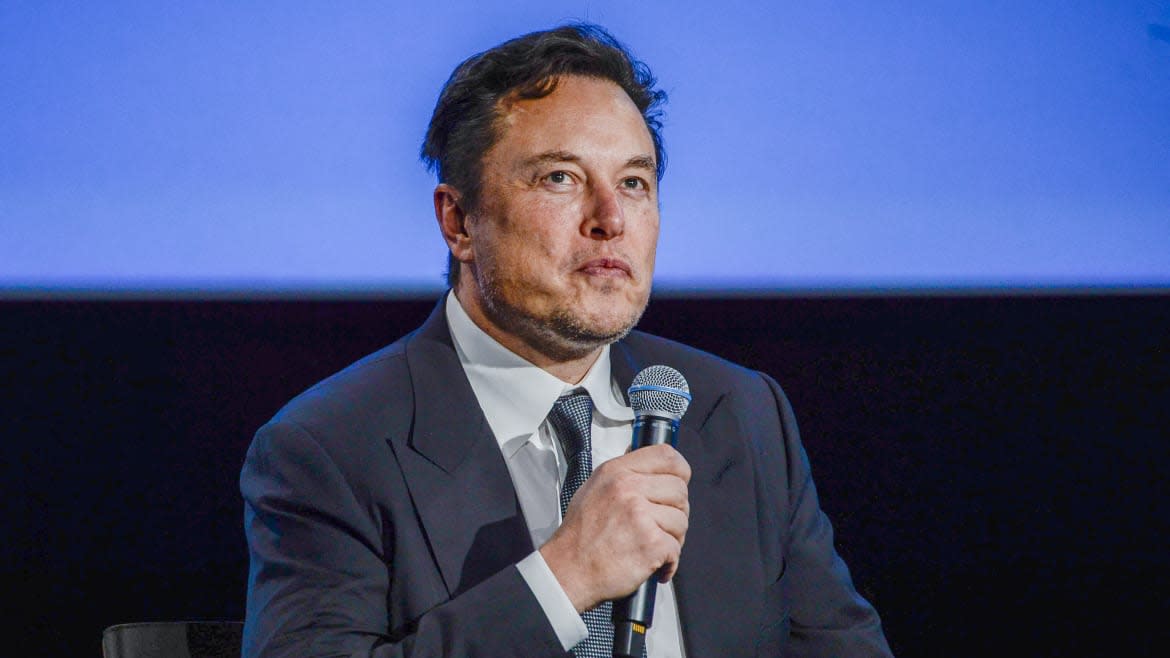NPR Ditches Twitter After Elon Musk Labeled It ‘State-Affiliated Media’

- Oops!Something went wrong.Please try again later.
National Public Radio has decided it’s had enough of Twitter after “Chief Twit” Elon Musk falsely labeled the news organization “state-affiliated media,” placing it in the same league as propaganda outlets from China and Russia.
NPR stopped tweeting from its main account last week after Musk hit it with the designation. After NPR tech reporter Bobby Allyn pressed Musk on the issue, the social media site’s owner acknowledged he might have been mistaken.
Twitter then revised the label to “government-funded,” which NPR also said was misleading as the outlet receives only 1 percent of its funding from the federal government. Additionally, the company is editorially independent and is a private non-profit.
In an interview with NPR on Wednesday, NPR CEO John Lansing said he would “never have our content go anywhere that would risk our credibility,” adding that NPR needs the ability to report without “a shadow of negativity.”
He also noted that the network wouldn’t immediately return to the site even if Musk dropped the label altogether, saying, “I have lost my faith in the decision-making at Twitter” and “need some time to understand whether Twitter can be trusted again.”
Lansing also told NPR staffers in an email that it “would be a disservice to the serious work you all do here to continue to share it on a platform that is associating the federal charter for public media with an abandoning of editorial independence or standards.” NPR’s journalists and employees could decide for themselves whether they’ll stay on the platform, he said..
The network posted one last Twitter thread to its main account on Wednesday morning, informing its millions of followers where it could find its content elsewhere. NPR will also no longer tweet from its 52 affiliated accounts.
“NPR’s organizational accounts will no longer be active on Twitter because the platform is taking actions that undermine our credibility by falsely implying that we are not editorially independent,” NPR chief communications officer Isabel Lara said in a statement to The Daily Beast. “We are not putting our journalism on platforms that have demonstrated an interest in undermining our credibility and the public’s understanding of our editorial independence. We are turning away from Twitter but not from our audiences and communities. There are plenty of ways to stay connected and keep up with NPR's news, music, and cultural content.”
Twitter, which has fired all of its public relations staff, auto-replied to a request for comment with a poop emoji.
On Wednesday afternoon, however, the edgelord billionaire took to Twitter to fire back at the news outlet.
“Defund NPR,” Musk tweeted alongside a screenshot of an NPR reporter’s question on whether he’s concerned “this will cause a chain reaction among news orgs.”
In recent weeks, Musk’s decision-making when it comes to Twitter has been erratic, unpredictable, and capricious. Claiming that “all news is to some degree propaganda,” for instance, Musk justified recently removing restrictions on Russian state media accounts that Twitter put in place after the Kremlin’s invasion of Ukraine.
The Tesla CEO has seemed intent on targeting mainstream media outlets. Besides NPR and the BBC, which he’s also falsely labeled “government-funded media,” Musk took away The New York Times’ verification badge after the paper declared it would not pay Twitter for a checkmark.
It hasn’t just been corporate media that Musk has targeted. Ahead of the publishing platform Substack debuting a new chat feature with similarities to Twitter, the self-described free speech warrior throttled links to the site, prompting widespread complaints from independent journalists who publish solely on Substack. This included Musk’s handpicked “Twitter Files” disseminator Matt Taibbi, who bailed on Twitter over Musk’s actions, setting off a feud between the two former comrades.
The mercurial billionaire also seemed both contentious and reflective in a wide-ranging interview with the BBC that was published on Wednesday. Acknowledging that his tenure at the company has been “quite painful,” Musk also admitted he only eventually bought Twitter for $44 billion in October because he would have lost a court case after initially trying to back out of the purchase.
“Have I shot myself in the foot with tweets multiple times? Yes,” he said at one point in the hastily arranged chat. At the same time, he disputed the BBC reporter’s claim that “hateful conduct” had increased on Twitter since he took over, telling the journalist “you just lied.”
He also laughed when the reporter said the BBC was “not thrilled” with its “government-funded” label, though Musk eventually said Twitter would adjust the designation to “publicly funded,” and do the same for NPR. However, according to Lansing, this is too little too late.
“The whole point isn’t whether or not we’re government funded,” the NPR chief said on Wednesday. “Even if we were government funded, which we’re not, the point is the independence, because all journalism has revenue of some sort.”
Get the Daily Beast's biggest scoops and scandals delivered right to your inbox. Sign up now.
Stay informed and gain unlimited access to the Daily Beast's unmatched reporting. Subscribe now.

